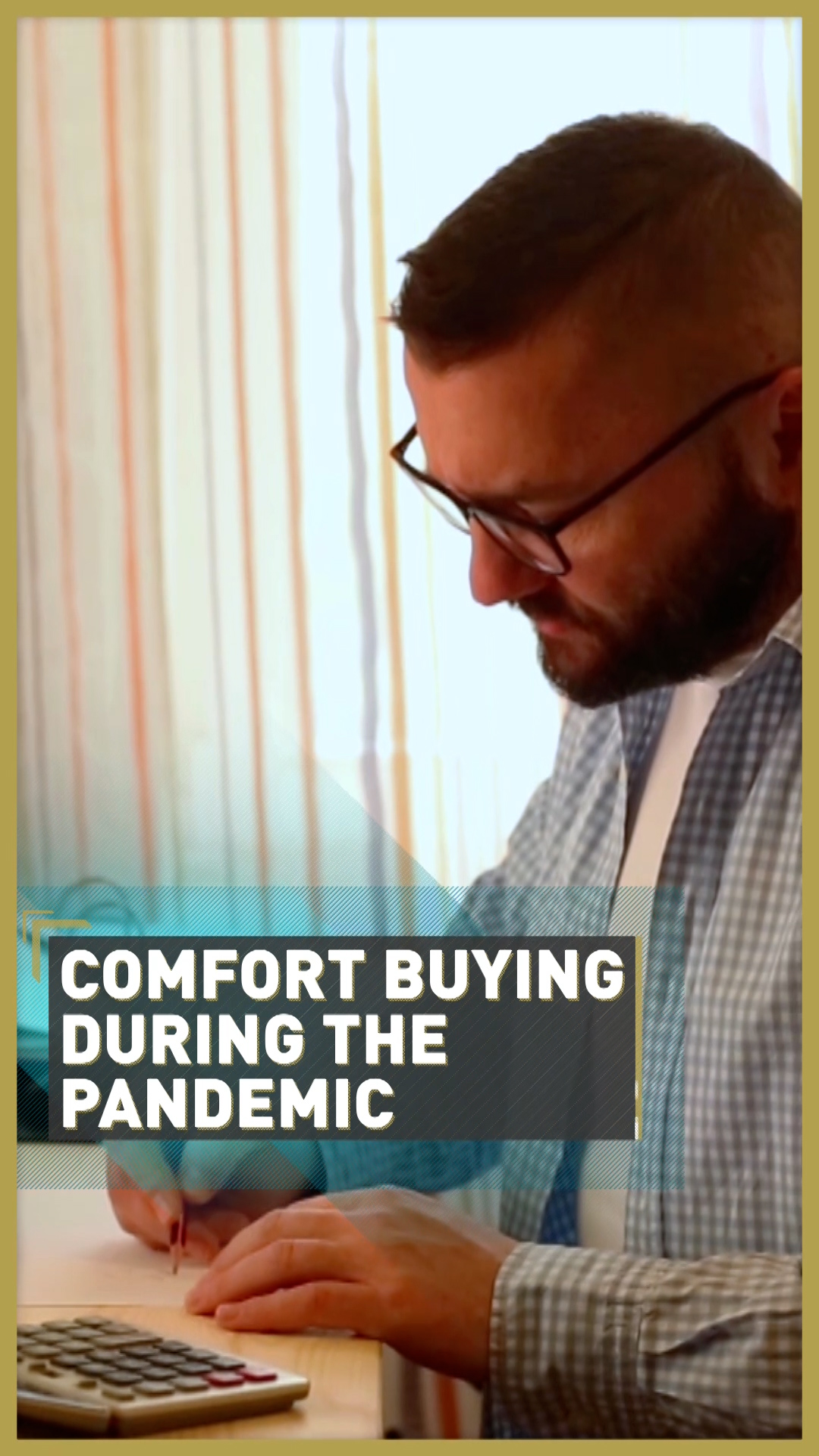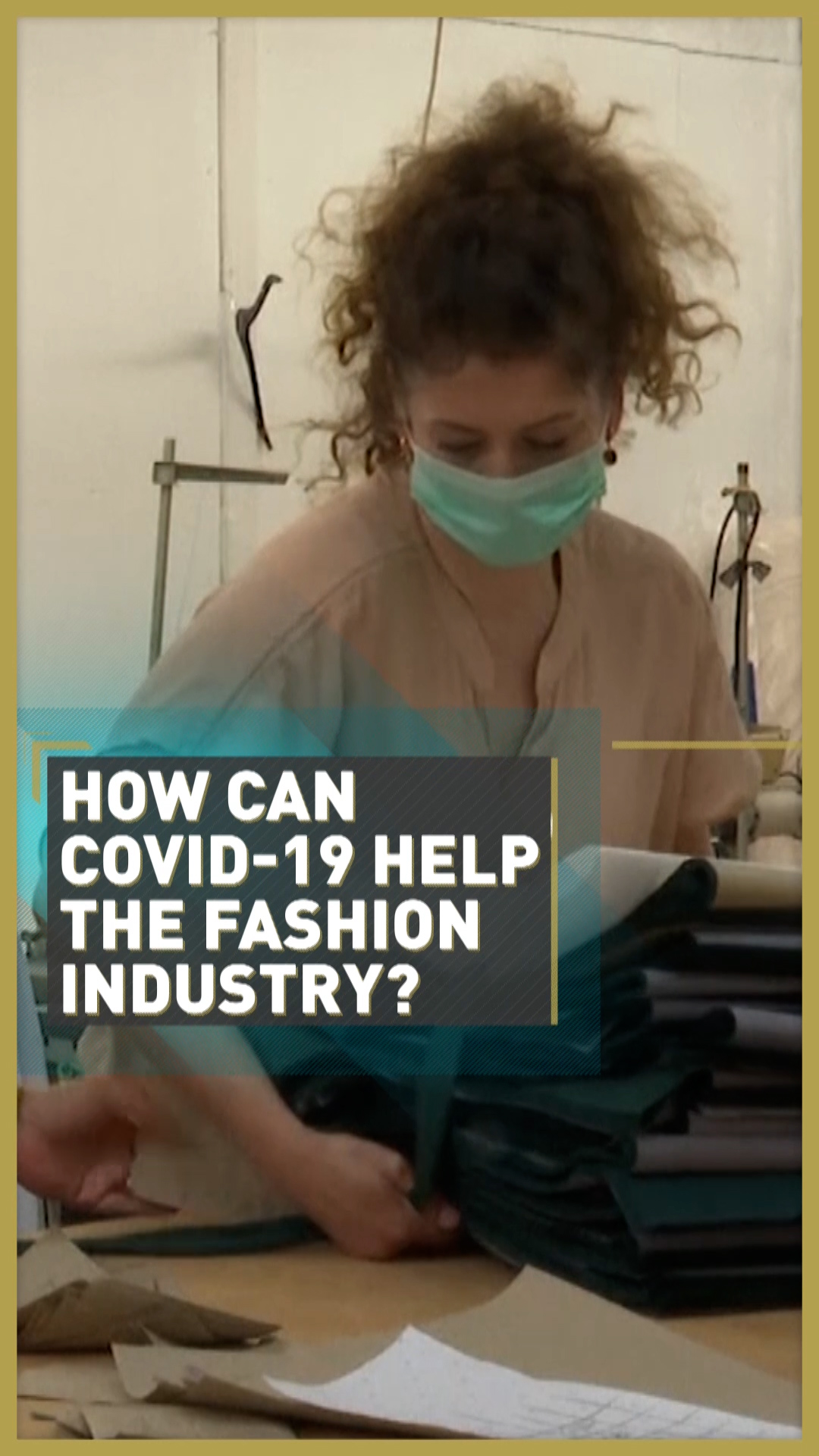00:36

COVID-19 continues to disrupt the world – and the fashion industry is one area that is being hit hard by the pandemic. CGTN Europe spoke to Dana Thomas, a fashion writer, about how the fashion industry is dealing with coronavirus and how the sector will be changed in the long-term.
"The coronavirus has really impacted the fashion world on all sorts of different levels," said Thomas.
"Models have no work, because there are no fashion shoots and there are no fashion shows and campaigns and there are no advertizing campaigns and there are no commercials being shot, so models are out of work and that means photographers, make-up artists, all that world is out of work and will be for some time."
Despite the high fashion world being put on hold, Thomas said that online demand has actually been high for products and clothing items that people associate with comfort.
"People in general aren't working, so we don't have as much disposable income in our pockets and we're not going to be shopping.
"Sales of spa products and beauty products are up because we're sitting at home going, 'right, let's do a facial tonight' in our tracksuit but we don't need a new cocktail dress for Friday night because we don't need new cocktail dresses for Zoom cocktails."
Thomas says the current comfort-buying trends have also shown a rise in demand for cashmere, pajamas, slippers and a lot of streetwear.
"You've got the good shirt going on, but then you've got the tracksuits that nobody sees," says Thomas of the video meetings that have become a staple for many home workers.
However, the popularity of tracksuits and loungewear seems ephemeral to Thomas, who says that, even though there will be a serious downturn in spending, when things begin to return to normal, people will still want to dress well when they come out of lockdown. There could also be frenzied responses.
"When China reopened, Hermès had the biggest day of sales in its history in one store in Guangzhou, the Chinese consumers were just so hungry to go shopping and still did have some disposable income."
Thomas also pointed out that the same thing happened at Hermès in New York's Upper East Side after 9/11.
"When other companies were having a really hard time, people went to Hermès on the Upper East Side and started buying handbags and scarfs with a mentality of "if this is the end of the world, I've always wanted to have an Hermès scarf, I think I'll go get it now."
00:45

Thomas said that with regard to this season – there is no "this season," and some fashion houses are even putting out old campaigns.
London Fashion Week as we know it, with catwalks and displays of the latest must-have items, is also cancelled and instead a virtual show is being organized.
Thomas says it is up in the air as to how designers will prepare for next season, as workshops and ateliers are currently out-of-bounds, and the fashion industry is having to stay afloat while people work from home, like all other industries.
"Everyone's sort of rethinking, they're sitting back and going, 'right, this is a time to hit reset, how are we going to rethink our business model, because what we've been doing isn't working right now and it may not work when we finally get out back to work.'"
Thomas also said that in the future we could also see a rise in "phygital" marketing, in which a new form of blended customer experiences are immersive and interactive. This could also lead towards a greener fashion industry, with zero-waste fashion production becoming more common and reduced air miles throughout the sector, from manufacturing to meetings.
"This is a time where they can go, right, we've never had a moment where we go 'let's take a look at how we can do this better and have less impact and save money' and I think they've been doing that," said Thomas.
Post-COVID-19, Thomas predicts there will be a shift from global to local, with the high street not necessarily disappearing but instead hosting more smaller businesses, particularly as main chains close stores.
"We're going to be sourcing closer to home in all different ways because we aren't going to be traveling so much and because we've got used to going, 'right, I'm just going to go down the street to get what I need' as opposed to going really far away 'because I'm not allowed to go far away.'"
Thomas predicts a rise in local merchants on the high street and a turn to bookshops and stationers and "all of those things which we've been missing and mourning when the big chains came in and put them out of business."
But Thomas says, for now, tracksuits and pyjamas are the must-have fashion items.
Video editor: Natalia Luz